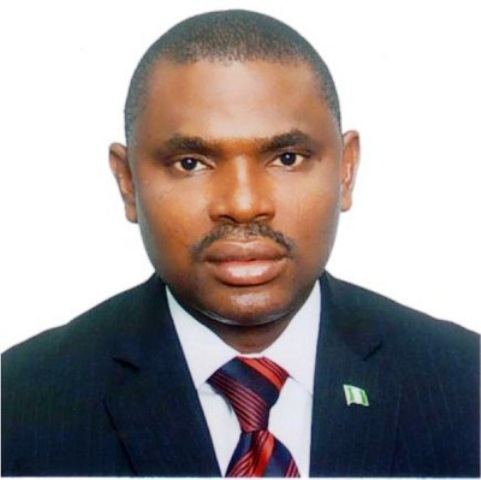...To get all news updates, Join our WhatsApp Group (Click Here)
Also Join our WhatsApp Channel (Click Here)
The newly-appointed Special Investigator by President Bola Tinubu, Jim Obazee, served as the Executive Secretary of the Financial Reporting Council for more than six years.
From November 2010 when he was appointed as the FRC boss, till January 2017 when he was fired by former President Muhammadu Buhari, Obazee never showed any discomfort with controversies, as he made several controversial headlines.
In January 2017, before he was fired by Buhari, Obazee got entangled in controversy due to the enforcement of the code of corporate governance law.
The current CBN investigator had been re-appointed in 2015 by Buhari for another term of four years, which was to elapse in 2018, but was sacked in January 2017 after the controversial corporate governance law.
Towards the end of 2016, the FRC ordered not-for-profit organisations, including churches and mosques, to comply with the corporate governance code stipulating a term of 20 years for heads of such entities.
The law forced the General Overseer of the Redeemed Christian Church of God, Pastor Enoch Adeboye, who had spent over 20 years as the head of the church, to name a National Overseer for the RCCG, Joshua Obayemi, at the time.
Adeboye, however, remained the global overseer of the church during this period.
However, two days after Adeboye stepped down, and in the heat of the controversy, Buhari sacked Obazee and approved the reconstitution of the board.
Following this development, the aide to the Minister Federal Ministry of Industry, Trade and Investment, Constance Ikokwu, announced in a statement that the corporate governance code had also been suspended for review.
“The Corporate Governance Code issued by the Financial Reporting Council of Nigeria has been suspended pending a detailed review, extensive consultation with stakeholders and reconstitution of the board of the FRC,” the ministry had stated in the statement.
Sanusi’s sacking
The FRC under Obazee recommended the sacking of the former Governor of the Central Bank of Nigeria in February 2014, which was also controversial at the time.
Before he was sacked, Sanusi had alleged that billions of dollars accruable to the federation were being diverted by some persons in the management of the Nigerian National Petroleum Corporation during the administration of former President Goodluck Jonathan.
Following Sanusi’s allegation, the FRC accused Sanusi of financial recklessness and recommended that he be asked to step aside, which was eventually upheld by Jonathan, leading to the sacking of the former CBN boss.
After Sanusi was removed from office, he was probed by the FRC but he shunned several invitations from the council and later sued the agency for defamation of character.
Similarly, the FRC under Obazee suspended Atedo Peterside as the chairman of Stanbic IBTC in October 2015, citing infractions in the 2013-14 financial statements of the bank as the reason for its decision.
The council at the time directed the Deposit Money Bank to restate and to re-issue its 2013-14 financial statements. It consequently imposed a N1bn fine on the DMB.
It also suspended other senior management officials of Stanbic IBTC, including the Group Managing Director, Sola David-Borha and chief finance officer, among others. The council, however, lifted the suspension on the bank’s management in December 2016.
Obazee, a BSc. holder in Accounting from the University of Benin, and MSc. Accounting from the University of Lagos, also has a certification in Strategic Financial Analysis for Business Evaluation from Harvard University, United States.
The former FRC boss is a fellow of the Institute of Chartered Accountants of Nigeria, and a member of the Nigeria Institute of Management, as well as the American Accounting Association.
In his earlier role, he was on attachment to the Financial Accounting Standard Board, United States, and Atlantic Schools of Business, Canada.
He was the Chairman of the 29th Session of UNCTAD-ISAR (International Standards of Accounting and Reporting) and Chairman of the Committee of the Roadmap to the adoption of International Financial Reporting Standards in Nigeria.
You can get every of our news as soon as they drop on WhatsApp ...To get all news updates, Join our WhatsApp Group (Click Here)
Also Join our WhatsApp Channel (Click Here)

















